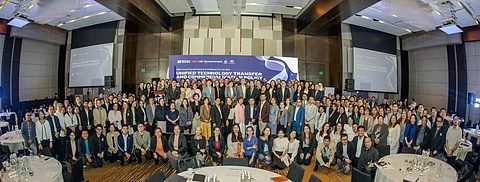
- NEWS
- the EDIT
- COMMENTARY
- BUSINESS
- LIFE
- SHOW
- ACTION
- GLOBAL GOALS
- SNAPS
- DYARYO TIRADA
- MORE

The Department of Science and Technology (DOST), in partnership with the British Council, brought together over 200 stakeholders in a national consultative conference to draft the Technology Transfer Policy Framework for DOST on 3 April. The initiative aims to create a unified national policy that will strengthen the Philippines’ technology transfer and commercialization ecosystem.
Supported through the UK’s International Science Partnerships Fund (ISPF), the conference gathered voices from government, research institutions, higher education, and the private sector. It builds on a series of policy workshops previously held in February and March.
Lloyd Cameron, Economic and Climate Counsellor at the British Embassy Manila, emphasized the importance of innovation in addressing global challenges.
“Without innovation, society cannot move forward. We won’t be able to address inequalities or the urgent challenges facing our world — from climate to energy and beyond. This is why technology transfer and commercialization are essential,” he said.
DOST Secretary Renato Solidum echoed this message, noting the agency’s continued efforts to position the Philippines as a hub for globally competitive technologies and innovation-driven enterprises.
The conference featured a policy write shop led by UK consultants Dr. Irene Dal Poz and Dr. Fabio Bianchi of Oxentia Ltd., with additional insights from global and regional experts, including representatives from the World Intellectual Property Organization (WIPO), the National University of Singapore, and Origgin Singapore.
The Technology Transfer Policy Framework for DOST is expected to be finalized later this April. It is poised to provide a strategic roadmap for translating research from Philippine universities and institutions into viable, high-impact innovations and businesses.
